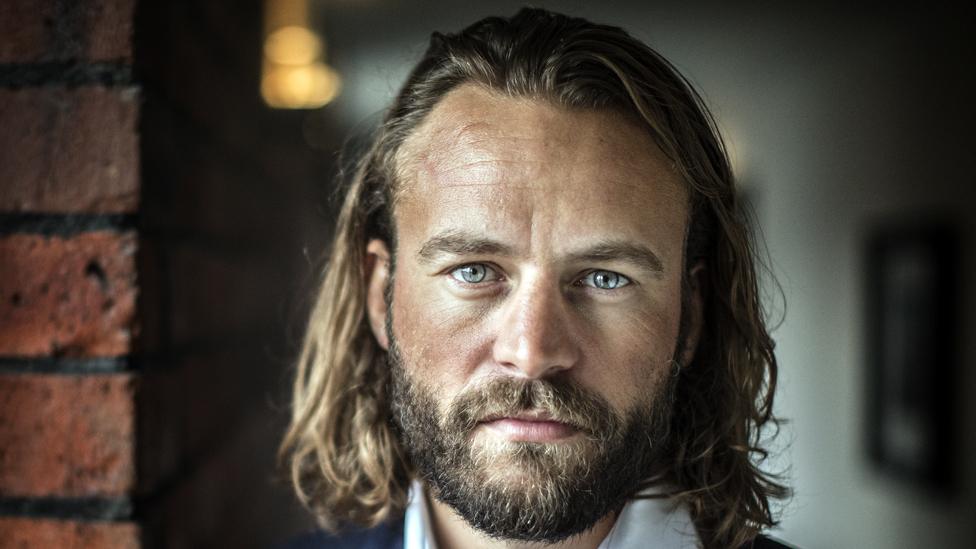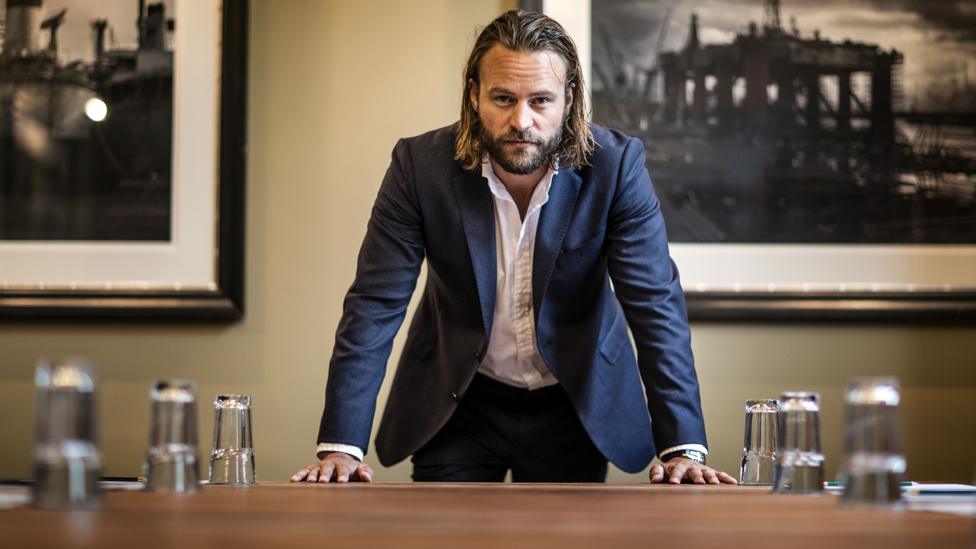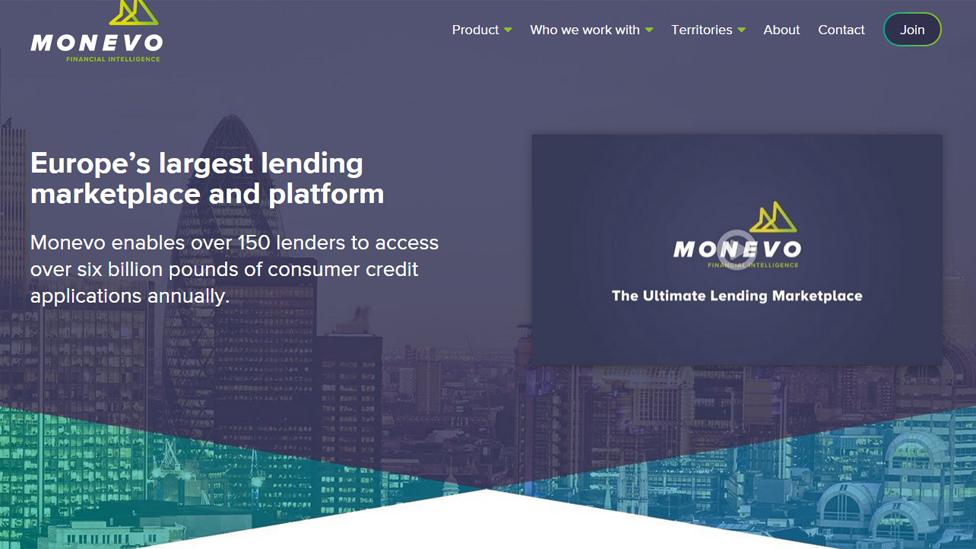How a rugby injury led to a successful business career
- Published

Greg Cox swapped rugby for the life of an entrepreneur
When a serious injury ended Greg Cox's hopes of making it as a professional rugby player, little did he know that it would set him on the path to making a fortune in business.
On the books of top English club Wasps back in 1999, the then 18-year-old was playing regularly for the second team, and had been called up by the England Under 19s squad.
Then one rainy evening training session Mr Cox says he twisted his knee ligaments "and that was that".
"I had a full knee operation, and I did return to Wasps the next year," he says. "But still recovering from the injury I couldn't apply myself as much when I came back. And you have to be 100% committed [to be successful at rugby]."
So realising that his contract was not going to be renewed he left the club, swapping rugby for working on building sites.
"I was earning £300 a week cash in hand, which when you are living at home isn't bad, but I was looking for something else to do, and thinking 'how can I earn more money?'."

Mr Cox's Quint Group has offices in five countries
Soon Mr Cox swapped being a bricklayer for the life of a serial entrepreneur, moving from importing cars, to property investments, and then into the world of finance.
Since 2009 he has been the founder and chief executive of Quint Group, which owns a number of financial technology or "fintech" businesses, and today has an annual turnover of £42m.
"I think I have always been entrepreneurial, I was always selling things to other pupils at school... and I've always had a real drive," says Mr Cox, now 36.
Educated at a private school in the south west of England, he had gained good enough A-levels to go to university, but instead chose to try a career in rugby.
When things didn't work out at Wasps, he didn't think of making a late arrival at college. Instead while working on those building sites he came up with his first big moneymaking idea - importing cars.

Mr Cox's career has gone from cars to property and the financial sector
"There was an article in the Sunday Times all about how to import a car from Europe and save money," he says. "At the time there was a big hoo-ha in the press about cars in Europe being 20% cheaper than in the UK.
"So I thought that this was a really good idea for a business, so I created a company to help people import cars from Europe."
Remembering how to program computers from his school days Mr Cox quickly built a website and started to import up to 400 cars a month, even handling work for much larger firms such as Virgin Cars.
"What many people didn't realise is that you could simply go to a car dealer in Germany or Belgium and they'd be quite happy to sell you a right hand drive car. It wasn't as if people would have to put up with a left hand drive vehicle."
For the next two to three years business boomed for Mr Cox and his company Coszt Imports "despite the terrible name".

Quint's businesses are online or tech based
But then a combination of the dotcom bubble bursting in 2001, and the pound going up in value meant that the business went bust.
"I felt dented pride and a bit stupid, I guess," he says. "I had dived into it, and I didn't know how to run a business at that age.
"Obviously you think you are invincible at 21, but I learned a lot from it. I had racked up quite a bit of debt as a result of it all, so I just had to go straight back to work."
So licking his wounds, Mr Cox moved to South Africa, and thanks to the weakness of that country's currency, he started to once again export cars to the UK. He then expanded into property investments.
By 2008 Mr Cox was back in the UK and investing in the fintech sector when together with a friend and business partner called Paul Naden they launched Quint Group in January of the following year.

More The Boss features, which every week profile a different business leader from around the world:
Hollywood's go-to visual effects company
How Simon Carter fashioned a global menswear brand

Both investing £12,500, Mr Cox says that he saw a big opportunity to set up a number of consumer finance websites. Brands owned by Quint include Monevo, an online marketplace that connects lenders with consumers that wish to borrow money, and price comparison website Moneyguru.
Based in Macclesfield, in Cheshire in the north of England, Quint makes most of its money by charging lenders a commission, and it also has a data business called Infinian.
Mr Cox today owns 90% of Quint after buying out his co-founder last year. The company now has 100 employees, and overseas offices in Poland, China, South Africa, and the US, as it continues with its international expansion plans.

Mr Cox started his business career by importing cars from Germany and Belgium
Richard Bell, north west editor of business news publisher Bdaily, says that "given the level of growth that Quint has achieved over the past couple of years... I'm keen to see where they are headed. Exciting business with switched-on leadership."
Mr Cox is, however, happy to admit that it hasn't all been plain sailing at Quint, with an unsuccessful insurance business being closed down.
"When something doesn't work we stop it and do something else," he says.
"My advice to anyone wanting to start a business is: Focus on what you are good at, work relentlessly at it, make considered decisions, don't be too emotive, and with a bit of luck you'll have some success."